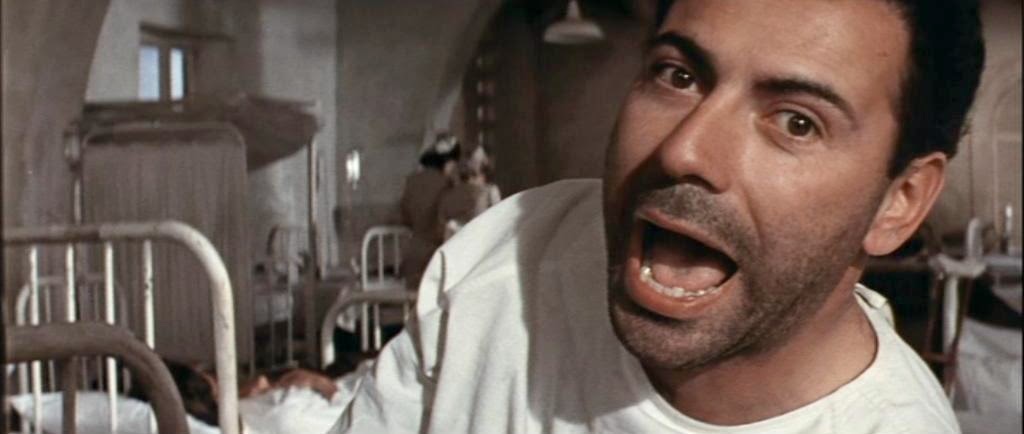Tuesday, March 25, 2014
Catch-22
for her about a certain situation,
withholding details, and I said
I'd try, but needed more than she had
told me, just to start. She'd read a book
when just a teen, and later saw
the movie where an Army guy who
couldn't take it any more claimed
he was crazy, and they told him
if he thought he was, he wasn't,
loophole to insure softhearted soldiers
couldn't bail out early from the war.
Catch-22.
"That's like it is in life," she said
and then she couldn't stop:
One man says he loves his wife,
but doesn't; buried deep inside,
the knowledge that he really never
did, not in the way she needs. But
the only way to prove his love would
be to let her go, and then he couldn't
punish her the way he does in countless
tiny ways throughout their time
together, pseudo-marriage that
appeases everyone and reassures society,
suits him fine as well. Another man
does not say it, ever, doesn't
love his wife and hasn't for so long
he can't remember how it felt to
want her next to him in bed, and yet
he stays. He's decent and it would
embarrass her if he just left,
despite her coldness and her anger,
the talent she is trying to perfect to
make him feel less of a man. And so
(the other catch) the solitary reason for
his sadness keeps him chained,
withheld from someone who'd
remind him every moment that he's loved.
"You've told me of two men," I asked,
"but where do you fit in?" For all I
knew she was the terror who had
trapped the second man and now felt
badly, or the sister of the woman
so unloved, or trying out a plot for
her new novel, hoping to compete
with what she read so long ago.
Tears welled up quickly but just sat
upon her lower lash, afraid to fall
onto her cheeks. A moment passed.
"I do not fit at all," she whispered,
then she smiled, and I could read
the hope there, see it happen as she
dreams it will. "Not yet."
"And what's the catch for you?"
I asked, and made her laugh out loud.
I'd stepped across a line not even poets
manage gracefully, because she'd told
me all that she would tell, and what
she left unspoken wasn't mine to share.
(c) Ellen Gillette, 2014
Poets may be the literary equivalent of bartenders. Stand still long enough, and someone will tell his or her story, or enough of it to see a poem temerge. I wish this woman well, and applaud her hope. And patience.
Subscribe to:
Post Comments (Atom)

No comments:
Post a Comment